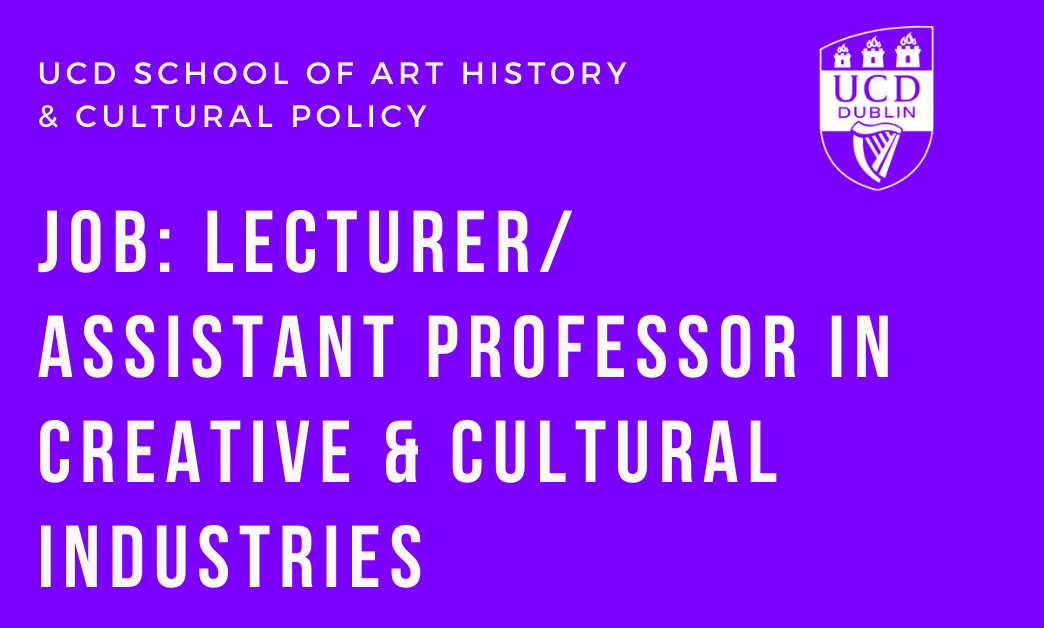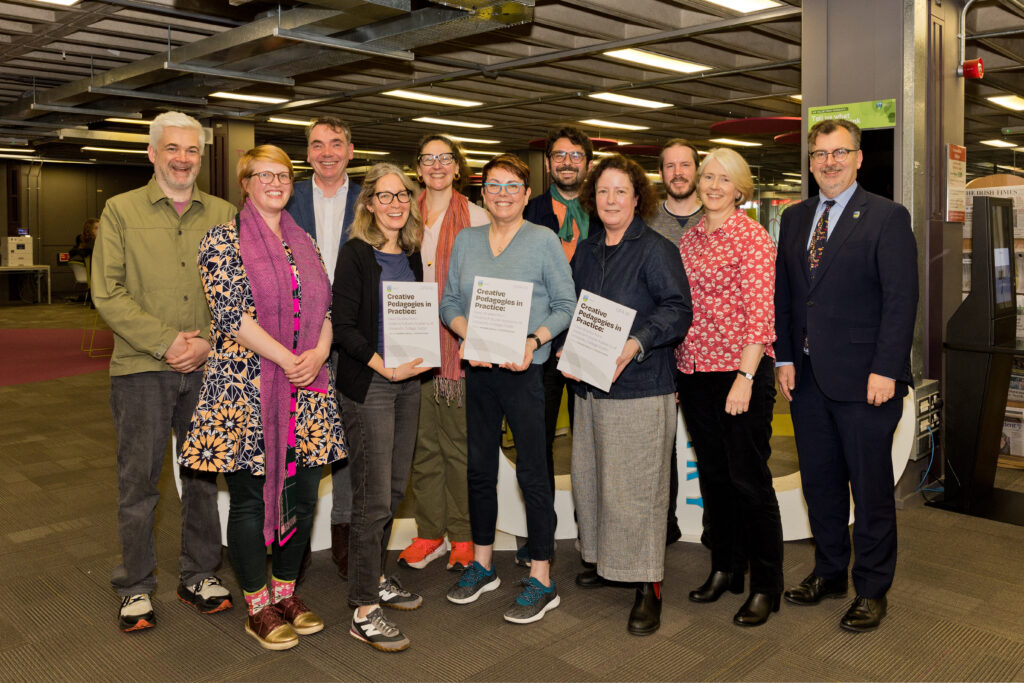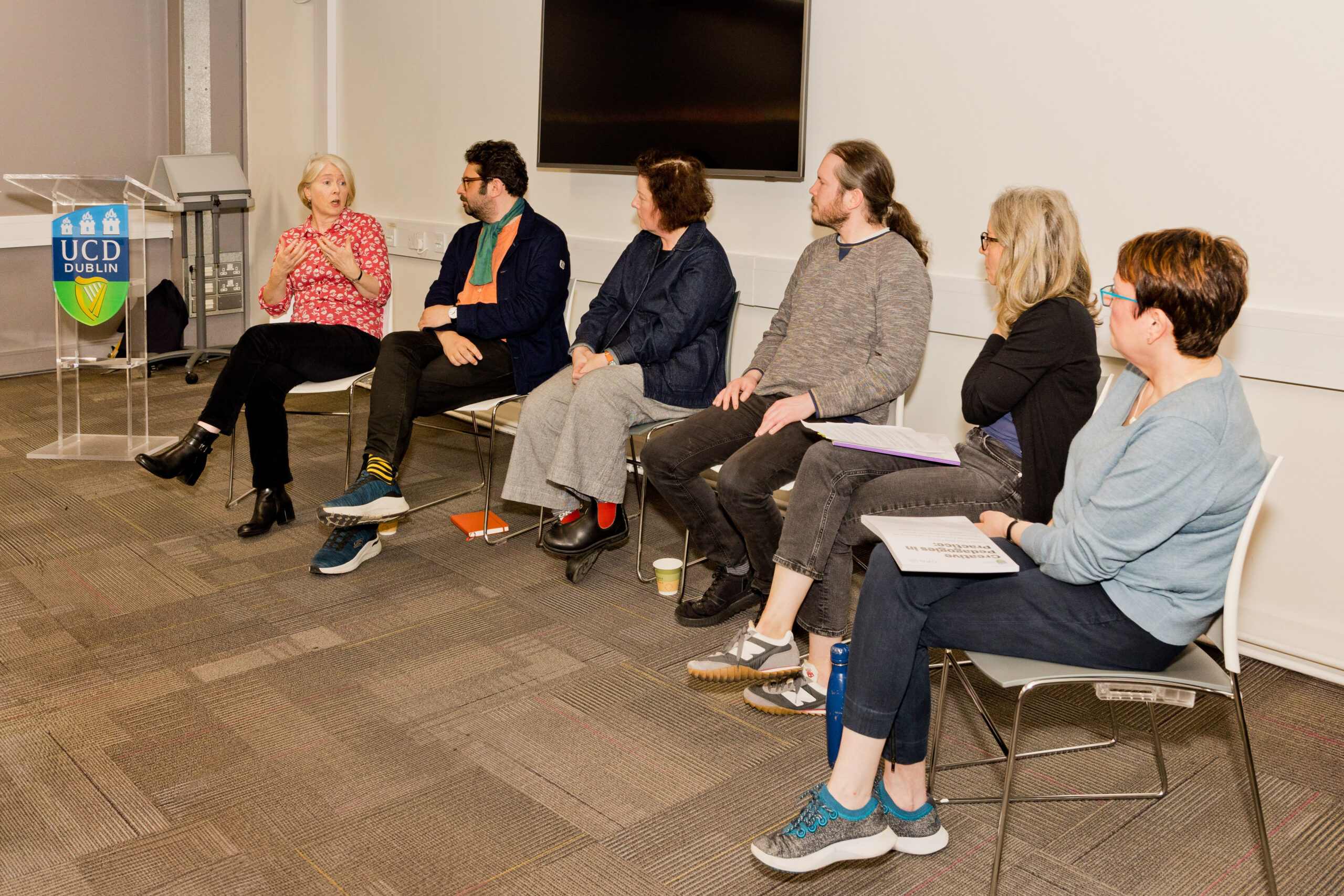
‘Creative Pedagogies’ case studies launched
Shauna Kelly
Published - October 23, 2025


The College of Arts & Humanities and UCD Creative Futures Academy were delighted to support the launch of Creative Pedagogies in Practice: Case Studies from Creative Futures Academy at University College Dublin on Tuesday 21 October.
Co-edited by Dr Annette Clancy and Dr Victoria Durrer (School of Art History & Cultural Policy), this volume features case studies by colleagues from UCD’s Creative Futures Academy team who work across the College of Arts and Humanities. These essays reflect on how creative pedagogies foster critical thinking in teaching and learning, promote new connections across disciplines and with the creative sector, and shape our identities as educators.

The volume was launched in UCD’s James Joyce Library by Professor Colin Scott, Registrar, Deputy President and Vice President for Academic Affairs.
Professor Scott praised the BA Humanities in Creative & Cultural Industries – one of the CFA’s flagship courses – as a pioneering programme with an important role for experiential learning and engagement with industry, and an important example in the college of interdisciplinary engagement, supportive learning, and now research and creative pedagogy.
‘It is exciting to see all of the different ways that creativity is being integrated into the curriculum (…) This publication is a milestone in a much larger project, and we welcome the creativity and initiative of it.’
College Principal of Arts & Humanities, Professor Regina Uí Chollatáin said, ‘This volume attests to exciting and pioneering work which has taken place under the auspices of CFA.’
‘This publication will undoubtedly be an invaluable resource in assessing and breaking new ground in the creative and cultural arts and industries, and we look forward to showcasing the success of the programmes and collaborative networks within the (Creative Futures) Academy. The unique collaboration with our partners enables us to explore new and exciting avenues which enhance our research while we look at our academic and creative landscape through a new and exciting lens.’
Director of Creative Futures Academy at UCD, Professor PJ Mathews, reflected on the collection of case studies and the wider CFA project.
‘As we come to the end of the first phase of work of Creative Futures Academy at UCD, it is appropriate that we consider what has been achieved. This collection of case studies on creative pedagogy reflects on the work carried out by academic staff, supported by funding from the HEA Human Capital Initiative. A key objective of this funding has been to incentivise innovation in higher education provision, building on best practice nationally and internationally. This collection of case studies is conceived with that goal in mind and is offered as our contribution to contemporary thinking on creative pedagogy.’
The launch featured a discussion from a panel of contributors to the volume, reflecting on how new creative pedagogies may present both challenges and opportunities for traditional ways of “knowing” how to teach. The panel featured Professor Lucy Collins (School of English, Drama & Film), Dr Nicolas Pillai (School of English, Drama & Film), Gráinne Humphreys (Director, Dublin International Film Festival), Dr Dónal Fullam (School of Music), and was moderated by the editors Drs Annette Clancy and Victoria Durrer from the School of Art History & Cultural Policy.
The panellists touched on their experiences of negotiating a shift from traditional to creative assessments, teaching students across disciplines of Humanities and Computer Science, bringing Industry into the classroom, and engaging with students in a way that informs their own work outside of the lecture hall.
The Creative Futures Academy (CFA) is a ground-breaking partnership between three leading creative institutions: The National College of Art and Design, University College Dublin, and the Institute of Art, Design + Technology aimed at supporting students in gaining new skills, fresh networks and opportunities for learning and career development. It has been funded by the Higher Education Authority.